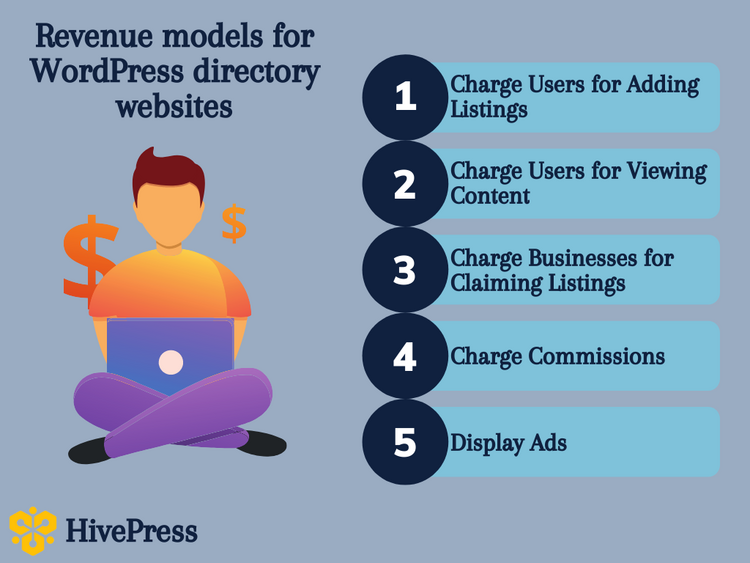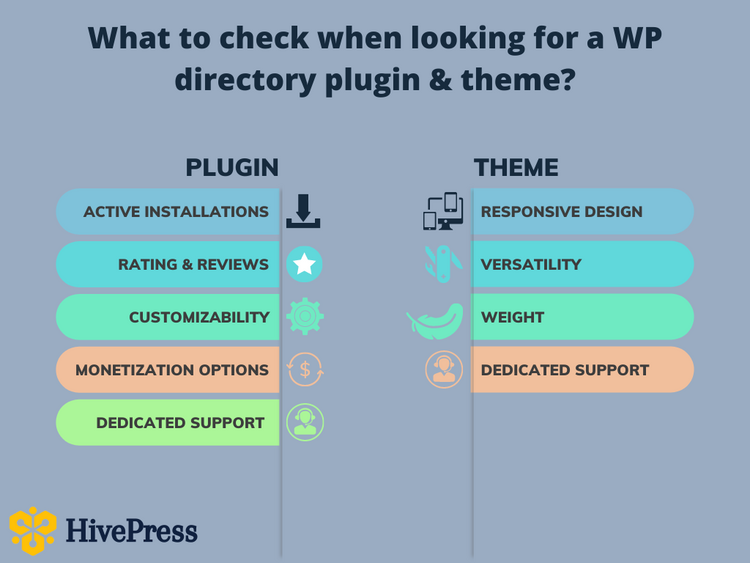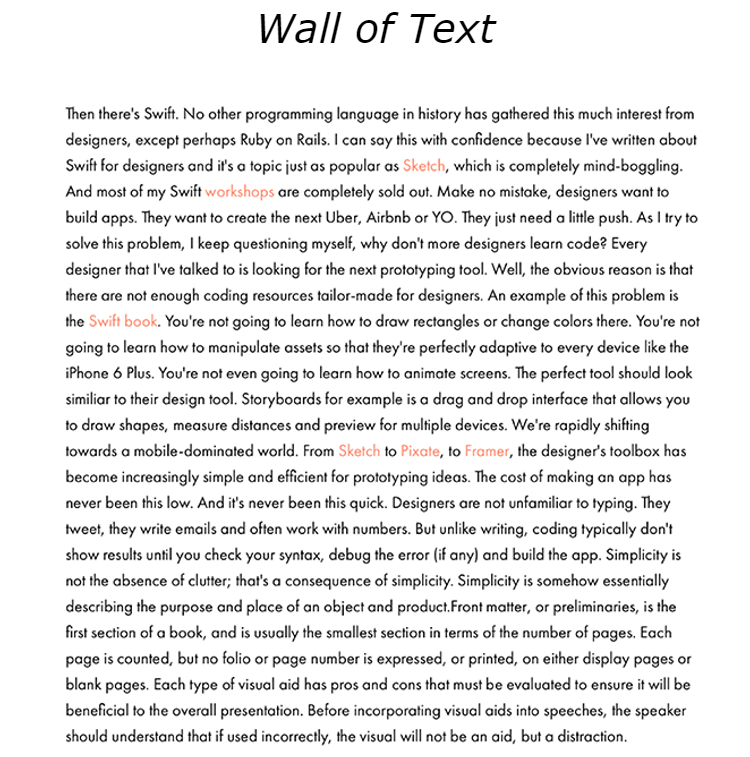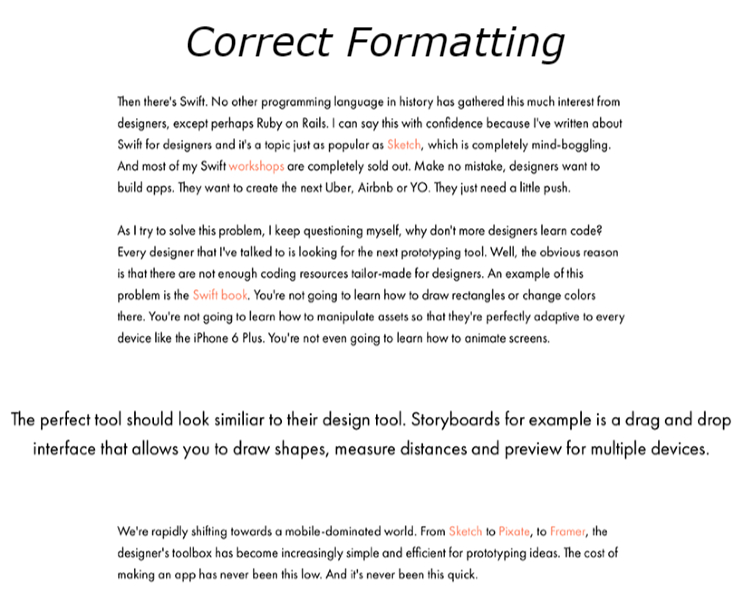How to Secure a WordPress Directory Website
A few tips on how to secure your WordPress directory website.
The most common mistakes people make when starting a directory site with WordPress.

When starting your own website, the last thing you want is to make costly mistakes right from the beginning, especially if you could easily avoid them.
However, when building a WordPress listing website, there is so much to think about, and certain important aspects can get overlooked. That’s why we prepared this post on the most common mistakes that people make when getting started with their own directory websites.
Also, you’ll find some tips on how to avoid those mistakes, so let’s dive in without wasting time!
Did you know that the companies with a business plan grow 30% faster than companies without one?
In a nutshell, a business plan is a written document that describes your business objectives and steps that you should take to achieve them.
Think of it as a roadmap for your future business because that’s actually what it is. While some people jump directly into “doing business” without planning it and trying to figure everything out on the go, you should remember that a business plan can make or break your project.
You might think: “I have a small project, so I don’t need a business plan for it”, or “It sounds like a lot of work, and I like figuring things out as I go” and so on.
However, as Benjamin Franklin said, “If you fail to plan, you are planning to fail”. Moreover, you don’t need to look for an expert or get buried in paper to write a plan.
As a starting point for your business plan, it’s enough to choose a niche, identify the problem you are going to solve and think about how you can make money from it. So let’s briefly cover each point.
When starting a new business, the main rule is to be specific, not generic. Here are some advantages of choosing your niche:
If you’re struggling to find your niche and it seems complicated for you, try following these 3 simple steps to choose a business niche.
Once you figure out what your niche is and the problems you can solve, congrats – you already made a great step towards building a successful online business. The next step is to find out what’s the best monetization model for your business.
Depending on the type of WordPress listing website you are about to build, there are several different monetization models that you can use.

Charging users for adding new listings is probably the most common way of making money when you are running a WordPress listing website.
Let’s imagine that you want to create a real estate directory site where users can list their properties. Then, you can create different listing packages (e.g., standard and premium), so users will have to pay each time they want to list their property on your site.
This monetization model is used by Craigslist, the most popular classified ads website. It charges users for adding new ads in certain categories like real estate or job openings.
If you want to launch something like Yelp and list information about different businesses in your area, then you can charge business owners for claiming their business pages on your website.
It’s a mutually beneficial monetization model since business owners get access to their pages and can keep everything up to date, and you can make a pretty penny.
To get a better idea of this monetization model, check out what Yelp says about it.
If you decide to turn your directory site into a multi-vendor marketplace, then the best business model for you is charging commissions. This way, your website serves as a mediator between sellers (service providers) and customers.
The idea is to facilitate the transaction between both parties and take a small commission from each successful sale.
The most prominent example of a company that uses this business model is Fiverr. It takes a 20% commission from each transaction made through the platform.
Additionally, you can allow users to use your website free of charge but make money from ads. There are many different types of ads like banners, texts, images or you may even integrate your website with Google AdSense and make money each time someone clicks on ads.
The second option is to create a memberships directory website. It may be a solid business model if you want to list some unique or hard-to-find information on your website, so users will be willing to pay to access it.
As a site owner, you can sell different membership plans, so only users with an active plan will be able to navigate all the pages on your website.
So, we mentioned the most popular monetization models that you can use for your WordPress listing website. It’s up to you whether to choose one or combine some of them. Everything depends on your website niche and requirements.
Now let’s move on and find out how to create a simple yet effective marketing strategy for your business.
Marketing strategy is a must-have component of any successful business. Simply saying, it’s your own game plan of how you gonna convert leads into customers.
The good news is that you don’t have to be a marketing guru to come up with a simple marketing strategy. No doubt that you’ll be changing your strategy while doing business, but there are some fundamentals you should know from the beginning:
It’s crucial to know all these components at the initial stages of your business for two reasons. Firstly, you’ll have a clear understanding of your potential clients’ needs. Secondly, it will save you tons of money on advertisement since you’ll know your target audience.
Now let’s have a quick recap of the most important questions you should ask yourself when creating a directory website with WordPress.

Another common mistake among website owners is choosing a poor-quality hosting service for their website.
Hosting gives your website a spot on the internet so people can actually visit it anytime and where you host your directory website really matters since hosting affects your website’s:
Since hosting plays such an essential role in your website performance, it’s better to take this matter seriously.
Here’s a piece of advice on choosing a hosting provider when creating a listing website with WordPress.
Generally, there are three most common types of hosting:
It can be tempting to grab a free hosting deal or a shared one to save a few bucks. However, you should keep in mind that the hosting service for your website is not an area to cheap out on.
That’s why we recommend using VPS hosting to ensure that your website is secure and blazing fast. Unlike shared hosting, where your site lives on a server along with many other websites that can affect your site’s performance and speed, with VPS, you get a separate virtual server specially for your WordPress listing website.
If you want to create a directory website with WordPress but struggle to choose a hosting provider, you can check out our overview of the popular WordPress hosts and choose one of them.
When looking for a hosting provider, think about what your website is now and what you want it to be five years from now. When your website starts getting a lot of traffic, there may be a need to scale your hosting plan to process all the traffic without any technical issues.
So choose a hosting provider which can provide you with the resources you may need in the future without compromising on site speed and quality. The best way is to ask the hosting company about scalability options before purchasing a plan.
Plugins are one of the main WordPress advantages. They are like the building blocks of your WordPress site, allowing you to extend its functionality with just a few clicks.
One of the biggest mistakes you can make when launching a WordPress listing website is being careless about plugins and a theme you install on your site.
As the saying goes – you reap what you sow. If you choose a poor theme for your website and complement it with one or several unreliable plugins, you can’t expect your site to work correctly in the future. There may be tons of issues, starting from compatibility and ending with the inability to customize your website in the way you like.
So, I’ll try to briefly explain what to pay attention to when choosing a WordPress plugin and theme.
Here are some general recommendations on how to choose a WordPress directory plugin for your project that won’t let you down and a suitable theme for it.
When you are looking for a plugin for your WordPress listing website, you should pay attention to the following things:
If you are struggling with finding a reliable directory plugin for your project, you can check our overview of the best WordPress listing plugins to get a better understanding of the available options.
Picking the right plugin for your project is crucial, but it’s also important to find a theme that will provide your website with a minimalist yet functional design. Here are some tips on choosing a theme for your WordPress listing website:
If you haven’t decided yet which directory theme to use for your website, you can check out ListingHive. At the time of writing, it’s the most popular free WordPress directory theme that allows you to create any type of directory and listings sites.
So, here’s a quick summary of our recommendations for choosing a WordPress directory theme & plugin.

Did you know that more than 53 % of all website traffic comes from organic search?
Once you create your listing website with WordPress, it’s essential to take care of your website performance from the beginning.
There’s one mistake among website owners that we notice pretty often – launching and running a website without any SEO knowledge.
However, SEO is a cornerstone of any successful online business since it affects whether your website is visible to search engines. Moreover, SEO-optimized websites have many advantages like:
Also, you should keep in mind that if your website is not on page one, you are not winning the click since only 0.78% of Google searchers click on something from the second page of Google search results.
So if you want to have your WordPress listing website on the first page to be easily found by potential customers, you need to use the best WordPress SEO techniques.
Here are some key points of how to optimize your website for search engines:
You can drastically improve your website ranking by following the recommendations above. Moreover, an SEO-optimized website will not only bring additional traffic but it will also save you tons of money since you’ll have to spend less on ads when your site starts to appear on the first page of Google search.
Also, there’s one more thing that we’d like to warn you about. When you are starting your listing website, there is often a temptation to install dozens of different plugins.
While there are many decent plugins out there, it’s important not to bloat your website with extra plugins because it may result in:
So, install only those plugins that are absolutely necessary for your website and always check whether they are popular and regularly updated.
“A person who won’t read has no advantage over one who can’t read” by Mark Twain.
The same applies to collecting data from your website. If you ignore the importance of setting up analytics on your website with all the vital metrics of your business, you have no advantage over your competitors that have no access to your site’s analytics.
In most cases, when running an online business, your main goal should be increasing conversion rates by optimizing your website content based on users’ interests. The proven way to find out the interests and behavior of your website visitors is by integrating your website with Google Analytics, which can provide you with tons of insights on a daily basis.
So, if you are still not measuring analytics from your website, check out some of the advantages of doing it.
There’s an old business adage that “whatever is worth doing is worth measuring”, and with Google Analytics, you can have all the data at your fingertips. Here are some benefits of integrating your website with Google Analytics that allow you to:
You should keep in mind that every successful business is based on its ability to understand and utilize the data provided by its customers, competitors, and partners. So, try to collect as much data as possible and use these metrics to make data-driven decisions for your online business.
Finally, I’d like to talk about some common mistakes that many website owners make when it comes to website content and UX (user experience).
Here are a few issues with the design and website content that we notice really often when working with clients here at HivePress:
We’ve mentioned 5 of the most frequent mistakes that we notice on various websites. Now we’ll explain how to avoid each of the mentioned mistakes when creating a directory website with WordPress.
Let’s briefly cover each tip.
Cluttered websites often have distracting images or too many ads, making it hard for users to know where to look or what to interact with. Try to keep your website simple and not prioritize aesthetics over functionality and usability.
For example, take a look at the landing page of a website for selling t-shirt designs before and after its optimization.

As you can see, before the site’s optimization, there were a lot of graphic elements, redundant images and a small call-to-action button.
However, after optimization, there is a clear message to users and a visible call-to-action button, making it much easier for website visitors to understand how the website works and what to do next.
When creating new pages on your listing website, always pay attention to the colors that you are using. Avoid using too bright colors or those that are not matching with each other.
We recommend using ColorSpace every time you have to work with colors. ColorSpace is a free online tool that creates dozens of color palettes. It’s an excellent solution for anyone who struggles with finding perfectly matching colors.
When writing something on your directory website (e.g., blog post, announcement, product description, etc.), always try to break up your copy into smaller pieces. It will make reading your copy much easier and more engaging. For example, you can use:
With these few simple pieces in place, your copy will be more enjoyable to read. For example, just compare the two texts below. In both cases, it’s the same content, but formatting makes the difference.


Keywords play a crucial role in SEO optimization, but there are two things you have to bear in mind when it comes to using keywords.
When making content for your WordPress listing website, always start with keyword research to find out which topics are interesting for users and how they are searching for them.
You can use the following tools to find new keywords:
Each of these tools has its pros and cons, so it’s better to use all of them at once to find the best keywords for your content.
Sometimes, you can find all the great keywords for your content and start doing all the typical SEO good stuff, but then you jack it up too far.
In the old days, it was common among website owners to put as many keywords in the content as possible to appear higher in search results, and for some time, it worked. However, after Google’s Hummingbird update, keyword stuffing is no longer effective and can ruin your website’s ability to rank.
There is no perfect number of keywords per copy, so we recommend using the Rank Math or Yoast plugins which can suggest to you whether you have enough keywords within your copy or not.
The last piece of advice for today – try to be natural when writing your content and don’t write it for search engines but for people, and Google will reward you.
These were the 6 most common mistakes people make when creating a WordPress listing website.
We hope this article was helpful to you and you learned something valuable. Here is a quick recap of the main ideas in case you missed something:
By the way, if you are only thinking about launching your own directory or listing website with WordPress, you can try out the HivePress plugin. It’s a free and highly customizable plugin with tons of features that allow you to create any type of directory website without any coding knowledge.
Additionally, you can check our article about tips on running a business directory site.
A few tips on how to secure your WordPress directory website.
Simple tips on selecting a WordPress directory plugin.
Best revenue models for job board websites built with WordPress.